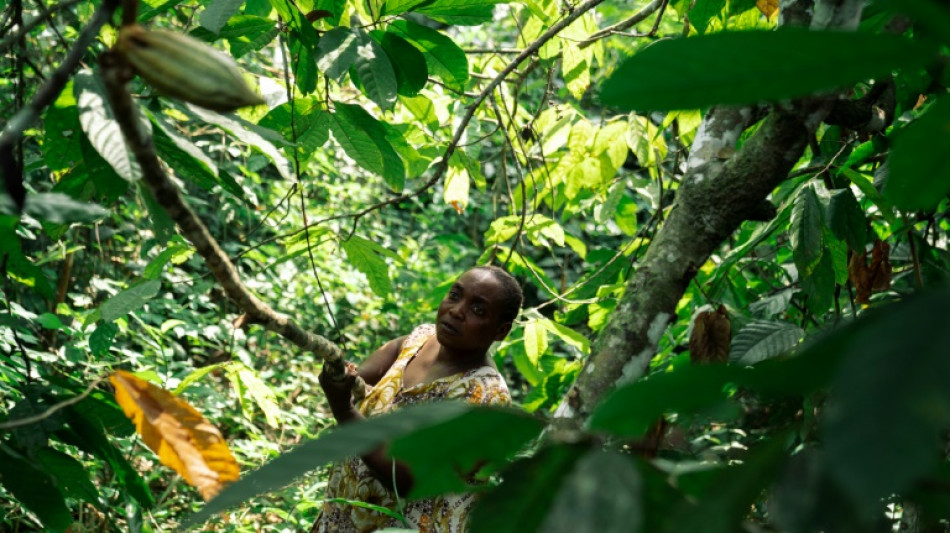
-
 'Humiliated': Combs's ex Cassie gives searing testimony of abuse
'Humiliated': Combs's ex Cassie gives searing testimony of abuse
-
Latin America mourns world's 'poorest president' Mujica, dead at 89
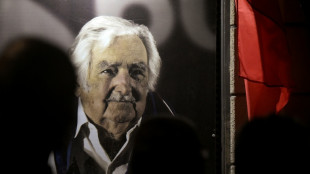
-
 Masters champion McIlroy to headline Australian Open
Masters champion McIlroy to headline Australian Open
-
Sean Combs's ex Cassie says he coerced her into 'disgusting' sex ordeals

-
 McIlroy, Scheffler and Schauffele together for rainy PGA battle
McIlroy, Scheffler and Schauffele together for rainy PGA battle
-
Uruguay's Mujica, world's 'poorest president,' dies aged 89
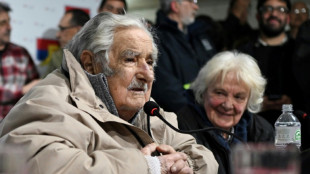
-
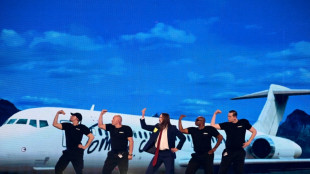 Lift-off at Eurovision as first qualifiers revealed
Lift-off at Eurovision as first qualifiers revealed
-
Forest striker Awoniyi placed in induced coma after surgery: reports

-
 'Kramer vs Kramer' director Robert Benton dies: representative
'Kramer vs Kramer' director Robert Benton dies: representative
-
Tatum suffered ruptured right Achilles in playoff defeat: Celtics

-
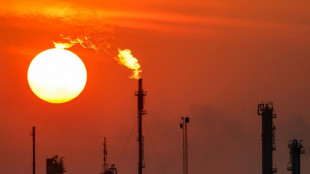 US stocks mostly rise on better inflation data while dollar retreats
US stocks mostly rise on better inflation data while dollar retreats
-
Winning farewell for Orlando Pirates' Spanish coach Riveiro
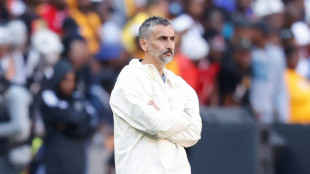
-
 Lift-off at Eurovision as first semi-final takes flight
Lift-off at Eurovision as first semi-final takes flight
-
UN relief chief urges action 'to prevent genocide' in Gaza
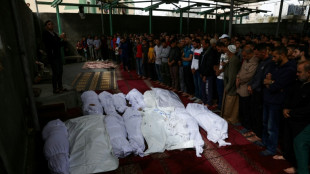
-
 Baseball pariahs Rose, Jackson eligible for Hall of Fame after league ruling
Baseball pariahs Rose, Jackson eligible for Hall of Fame after league ruling
-
Scheffler excited for 1-2-3 group with McIlroy, Schauffele

-
 Sean Combs's ex Cassie says he forced her into 'disgusting' sex ordeals
Sean Combs's ex Cassie says he forced her into 'disgusting' sex ordeals
-
Uruguay's 'poorest president' Mujica dies aged 89
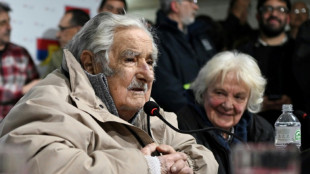
-
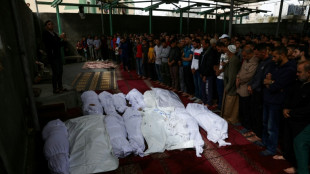 Senior UN official urges action 'to prevent genocide' in Gaza
Senior UN official urges action 'to prevent genocide' in Gaza
-
'Kramer vs Kramer' director Robert Benton dies: report

-
 Sinner moves through gears to reach Italian Open quarters
Sinner moves through gears to reach Italian Open quarters
-
Massages, chefs and trainers: Airbnb adds in-home services

-
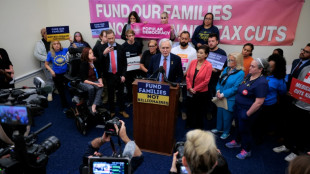 Republicans eye key votes on Trump tax cuts mega-bill
Republicans eye key votes on Trump tax cuts mega-bill
-
Brazil legend Marta returns for Japan friendlies

-
 McIlroy, Scheffler and Schauffele together to start PGA
McIlroy, Scheffler and Schauffele together to start PGA
-
Jose Mujica: Uruguay's tractor-driving leftist icon
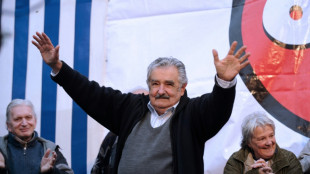
-
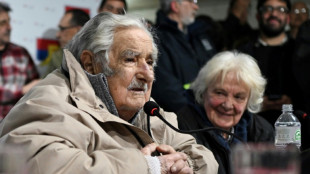 Uruguay's ex-president Mujica dead at 89
Uruguay's ex-president Mujica dead at 89
-
It's showtime at Eurovision as semis begin

-
 DeChambeau says '24 PGA near miss a major confidence boost
DeChambeau says '24 PGA near miss a major confidence boost
-
Gaza, Trump dominate politically charged Cannes Festival opening

-
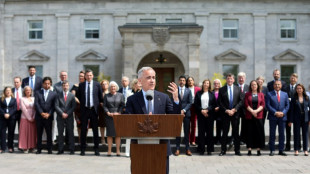 Carney says new govt will 'relentlessly' protect Canada sovereignty
Carney says new govt will 'relentlessly' protect Canada sovereignty
-
Gaza rescuers says Israeli strikes kill 28 near hospital
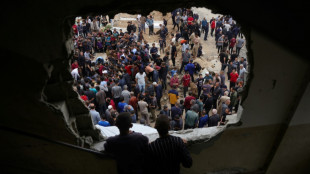
-
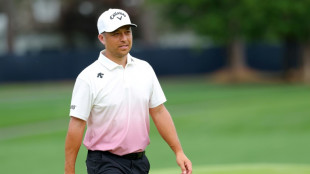 Schauffele still has something to prove after two major wins
Schauffele still has something to prove after two major wins
-
US inflation cooled in April as Trump began tariff rollout
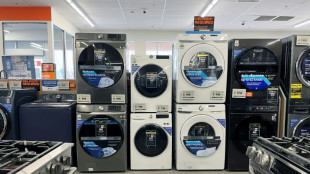
-
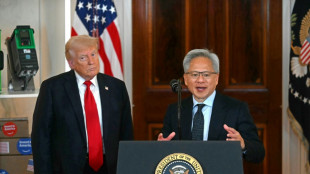 US reverses Biden-era export controls on advanced AI chips
US reverses Biden-era export controls on advanced AI chips
-
Trump, casting himself as peacemaker, to lift Syria sanctions
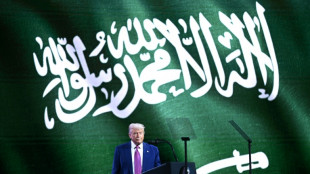
-
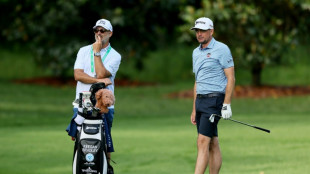 US Ryder Cup captain Bradley eyes LIV's Koepka, DeChambeau
US Ryder Cup captain Bradley eyes LIV's Koepka, DeChambeau
-
Musetti battles Medvedev and match-point rain delay to reach Rome quarters
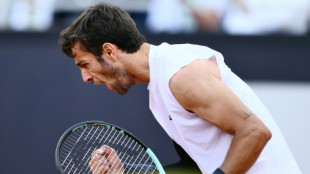
-
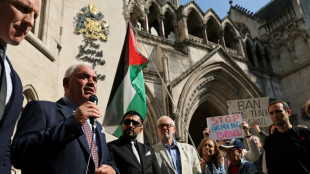 Rights groups urge court to halt UK fighter jet supplies to Israel
Rights groups urge court to halt UK fighter jet supplies to Israel
-
Steamy excitement at Eurovision contest

-
 Forest hit back over criticism of owner Marinakis over Nuno clash
Forest hit back over criticism of owner Marinakis over Nuno clash
-
Sean Combs's ex Cassie says he 'controlled' her life with violence

-
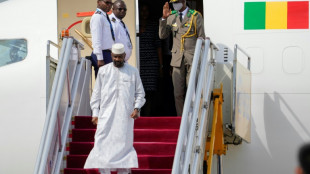 Mali dissolves political parties in blow to junta critics
Mali dissolves political parties in blow to junta critics
-
Blackmore's history-making exploits inspiring to all: de Bromhead

-
 Southern Hills named host of 2032 PGA Championship
Southern Hills named host of 2032 PGA Championship
-
Injury may delay outdoor season start for Norway's Ingebrigtsen

-
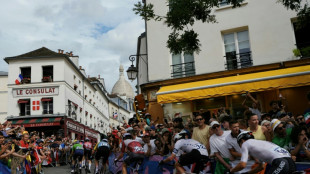 Tour de France to go through Paris' historic Montmartre district
Tour de France to go through Paris' historic Montmartre district
-
'We can't go back': India's border residents fear returning home
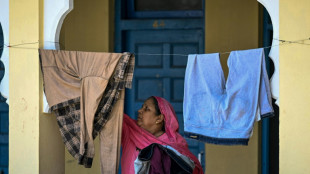
-
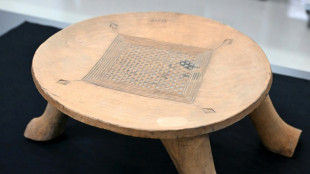 Finland returns sacred stool looted by France to Benin
Finland returns sacred stool looted by France to Benin
-
Israel PM says army entering Gaza 'with full force' in coming days
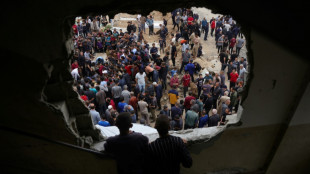

Armed groups covet cocoa in eastern DR Congo
Despite the risks from deadly armed groups roaming the countryside, Judith Kahindo walks alone every day to her isolated cocoa plantation in the war-torn North Kivu region of the eastern Democratic Republic of Congo.
North Kivu is primarily rich in coltan and other minerals that have fuelled the fighting that has ravaged the region for the last three decades.
Vast areas have been seized by the M23 rebel group in a lightning offensive since January including the capital Goma.
But further north in Beni, cocoa, whose prices have soared on the world market in the last two years, also stokes the violence.
Massacres committed by the Allied Democratic Forces (ADF) rebels, who have pledged allegiance to the Islamic State group, have left thousands dead and prevented cocoa farmers from accessing their plantations for years.
"We tend our fields with the fear of being massacred because cocoa is so coveted, whether by the rebels or even our soldiers," said Kahindo, a widow with eight children, as she hacked her way through a tangled forest with a machete.
Cocoa production across the DRC remains relatively marginal, just over one percent of global production.
- Smuggling -
But that is still enough to attract the attention of various armed groups in Beni who fuel smuggling networks to neighbouring Uganda, according to those involved in the sector.
"If there wasn't cocoa in abundance in Beni, the war would already have finished," said Kahindo.
The ADF are not the only threat to people in the area.
"There are people who are taking advantage of the terror caused by the ADF to steal," said Colonel Mak Hazukay, the Congolese army spokesman in the area.
Even before the emergence of the ADF in the 2000s, the region was already plagued by attacks from the "sangabalende" –- criminal groups that specialised in cocoa theft and smuggling, said Richard Kirumba, Beni civil society president.
Kirumba also said that some Congolese soldiers deployed to protect people from the ADF actually tax cocoa traders or loot abandoned fields.
Stolen cocoa is often trafficked through cross-border smuggling networks.
"The criminals sell the cocoa as it is. They just cut it, remove the husks that protect the beans and then sell it directly," said Frank Ndinyoka Kabeya, a cocoa buyer and a member of the Union of Traders of Agricultural Products in Congo.
Unwary buyers risk being stopped by police. But checks are lax in a country where corruption is endemic, according to NGO Transparency International.
On Beni's streets cocoa beans heaped on tarpaulins can be seen drying in the sun and are mainly sold to "small buyers", circumventing certification processes, said Karim Sibenda, an agricultural engineer at a local chocolate factory.
- Organic -
At the National Office of Agricultural Products of Congo (ONAPAC), which is responsible for certifying the quality and origin of cocoa for export, there is a buzz of activity during the harvest season.
Tonnes of beans with a vinegary scent are piled up in the warehouse, where employees fill and stamp canvas bags destined for export.
Company employee Agee Mbughavinywa, who buys and certifies agricultural products, said cocoa producers are identified by a code to ensure traceability.
The bags of cocoa beans are then mainly exported to Uganda, like other agricultural goods in the region.
Since the end of 2021, the DRC authorised Ugandan troops to operate in the region and fight the ADF alongside the Congolese army.
Their presence has been vital in securing vital trade routes and increase exports, ONACAP said.
But this rapprochement between Kinshasa and Kampala has sparked fears in the cocoa market.
"Ugandan buyers are destabilising the sector, they come with cash in hand and impose their prices on producers," said ONACAP's Beni director.
"They don't look at the quality, they take everything and export it under a Ugandan label, this is hampering the country's economy," she said.
In Beni, traditional farming methods and particularly fertile soil allow for the production of organic cocoa.
But the violence is also threatening its organic status. The European Union recently threatened to no longer recognise the label on local products, as insecurity prevents certification by inspectors.
Industry stakeholders fear that could encourage fraudulent exports of Congolese cocoa as Ugandan.
R.Fischer--VB
